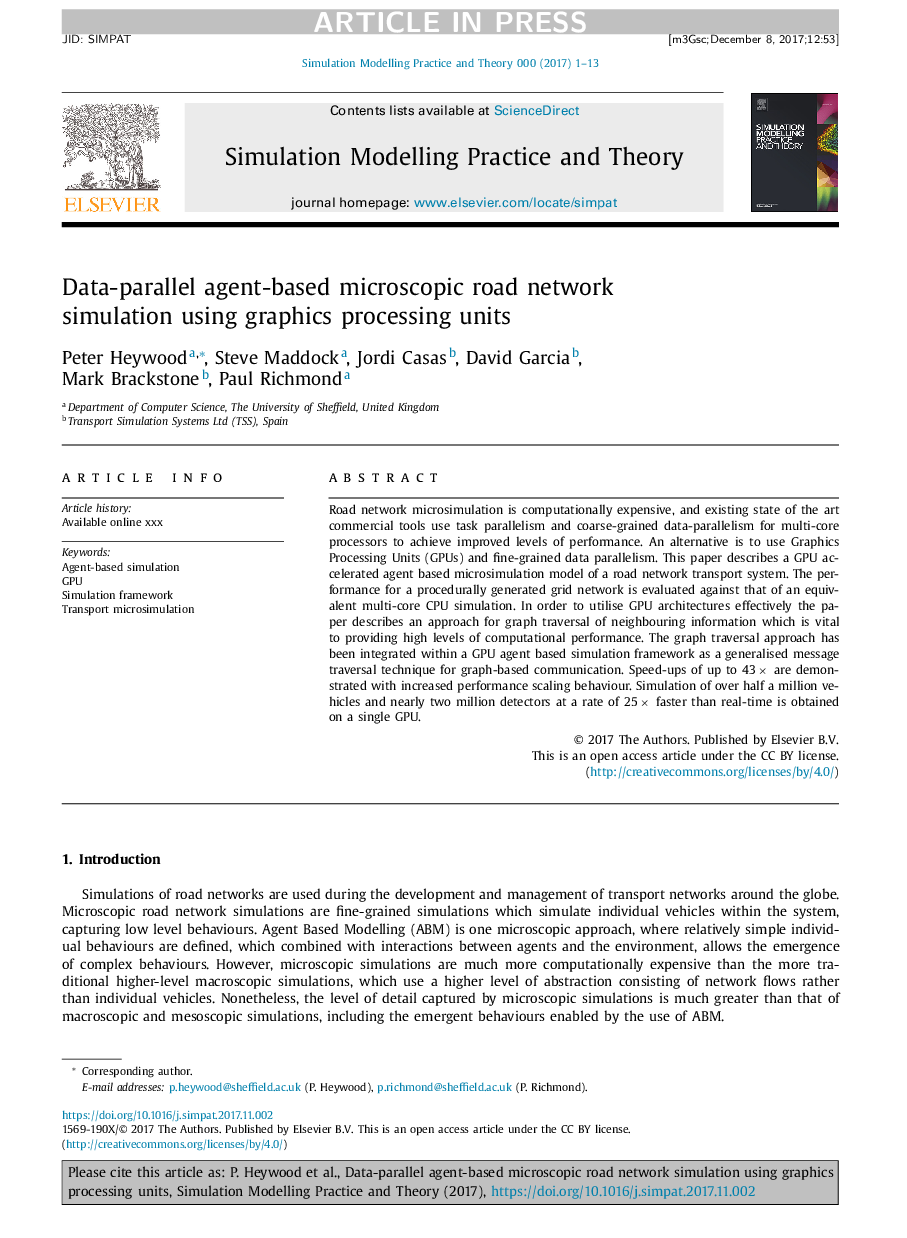| Article ID | Journal | Published Year | Pages | File Type |
|---|---|---|---|---|
| 6902733 | Simulation Modelling Practice and Theory | 2018 | 13 Pages |
Abstract
Road network microsimulation is computationally expensive, and existing state of the art commercial tools use task parallelism and coarse-grained data-parallelism for multi-core processors to achieve improved levels of performance. An alternative is to use Graphics Processing Units (GPUs) and fine-grained data parallelism. This paper describes a GPU accelerated agent based microsimulation model of a road network transport system. The performance for a procedurally generated grid network is evaluated against that of an equivalent multi-core CPU simulation. In order to utilise GPU architectures effectively the paper describes an approach for graph traversal of neighbouring information which is vital to providing high levels of computational performance. The graph traversal approach has been integrated within a GPU agent based simulation framework as a generalised message traversal technique for graph-based communication. Speed-ups of up to 43â¯Ã⯠are demonstrated with increased performance scaling behaviour. Simulation of over half a million vehicles and nearly two million detectors at a rate of 25â¯Ã⯠faster than real-time is obtained on a single GPU.
Related Topics
Physical Sciences and Engineering
Computer Science
Computer Science (General)
Authors
Peter Heywood, Steve Maddock, Jordi Casas, David Garcia, Mark Brackstone, Paul Richmond,
